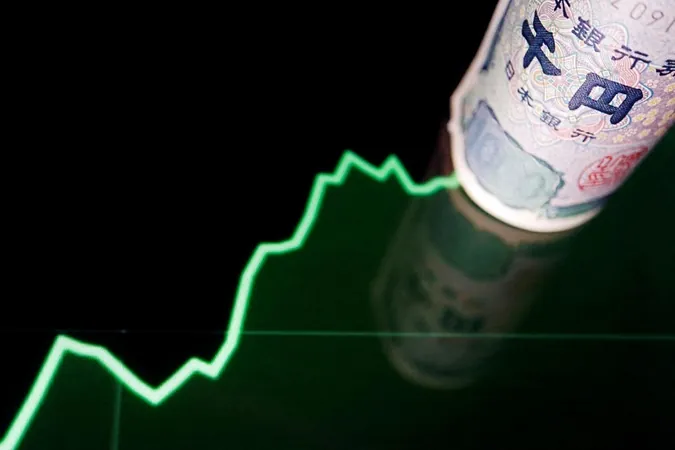
Yen Takes a Nosedive as New Prime Minister Signals No Rate Hikes on the Horizon!
2024-10-03
Introduction
In a shocking revelation that sent tremors through the currency markets, Japan's newly appointed Prime Minister Shigeru Ishiba declared that the country’s economy is not prepared for another interest rate hike from the Bank of Japan (BOJ). This announcement triggered a dramatic plunge in the yen, which fell over 2% to a low of 146.51 against the US dollar during New York trading on October 2.
Significant Decline in the Yen
This steep decline marks the yen's most significant daily drop in over two years, surpassing the volatility witnessed in early August. In addition to this, the yen also dipped 0.3% against the Singapore dollar, highlighting a trend of weakness that may impact international trade and investments for Japan.
Market Analysts' Concerns
Market analysts are sounding alarms about the current climate. "The yen’s volatility reflects deep-rooted uncertainties regarding BOJ policy and its interplay with the Prime Minister’s statements," noted Jane Foley, head of foreign exchange strategy at Rabobank. She anticipates that the Prime Minister will likely refrain from making further comments on BOJ policy, considering how sensitive the markets are to such remarks.
Historical Context
Tensions have further compounded since early August, when traders began to retract their currency bets funded by yen. The BOJ had moved towards raising interest rates, leading to a spike in volatility and a brief rally of the yen during the global backlash against carry trades. Now, with the BOJ expected to maintain a hold on policy rates to support Ishiba's new government, the outlook for the yen appears increasingly bleak.
Implications of BOJ Policy
"You can bet that if the BOJ surprises the market with a rate hike like they did on August 5, the repercussions for Ishiba’s administration could be monumental,” explained Yuya Yokota, a foreign exchange trader at Mitsubishi UFJ Trust and Banking in New York. "I foresee that the depreciation of the yen will persist well into the end of the year."
Impact on US Treasury Yields
In tandem with the yen's decline, US Treasury yields saw a notable uptick. Following a robust jobs report, the yield on the benchmark 10-year bond rose by 5 basis points to 3.78%. Federal Reserve Chairman Jerome Powell's recent remarks that the US economy remains strong have adjusted traders' expectations regarding potential Fed rate cuts.
Fed and BOJ Dynamic
"The Fed's more hawkish stance, juxtaposed with the BOJ's newfound reluctance to raise rates, has presented a 'double whammy' for the yen," commented Dr. Leah Traub, portfolio manager and head of the currency team at Lord Abbett. "The market previously was overly pessimistic about the dollar, and now it needs to adjust."
Trader Sentiment
Despite the current turmoil, there are still hints of optimism among yen option traders for the upcoming weeks, months, and quarters, albeit with a decline in bullish sentiment noted since early September. Hedge funds have maintained short positions on the currency but have scaled back their bearish bets as the yen's downturn continues, following a previous 1% drop driven by dollar strength after Powell's comments.
Conclusion
With ongoing market fluctuations and uncertainty surrounding policy directions, all eyes will remain on Japan to gauge future movements of the yen and the potential ripple effects across global markets. Will the yen find its footing, or is further decline on the horizon? Stay tuned!




 Brasil (PT)
Brasil (PT)
 Canada (EN)
Canada (EN)
 Chile (ES)
Chile (ES)
 España (ES)
España (ES)
 France (FR)
France (FR)
 Hong Kong (EN)
Hong Kong (EN)
 Italia (IT)
Italia (IT)
 日本 (JA)
日本 (JA)
 Magyarország (HU)
Magyarország (HU)
 Norge (NO)
Norge (NO)
 Polska (PL)
Polska (PL)
 Schweiz (DE)
Schweiz (DE)
 Singapore (EN)
Singapore (EN)
 Sverige (SV)
Sverige (SV)
 Suomi (FI)
Suomi (FI)
 Türkiye (TR)
Türkiye (TR)